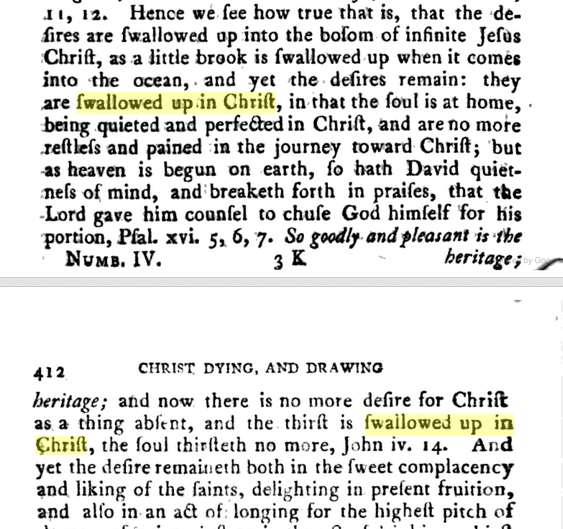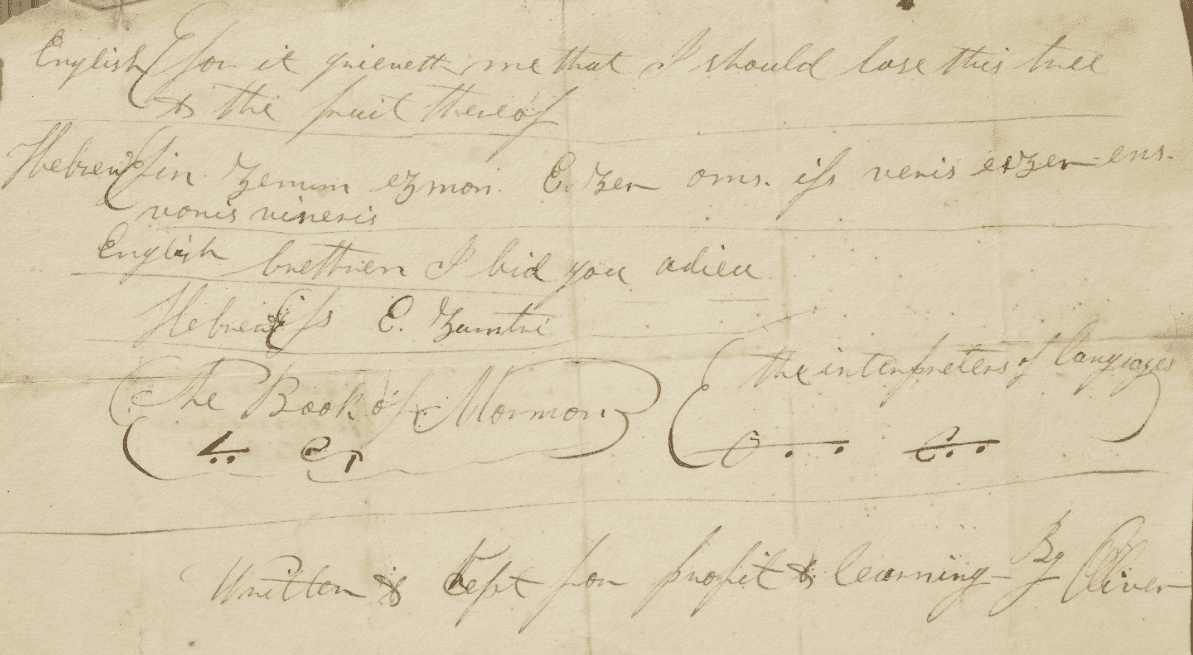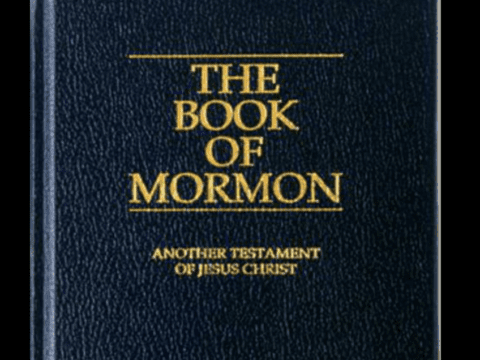There’s no question that the Book of Mormon has great intertextuality with the Bible, frequently drawing upon its language to convey its stories and concepts in familiar sacred language. The subtle allusions and variations that occur can often lead to significant insights into how we can better understand and apply the text of the Book of Mormon.
An interesting example of such intertexuality (a.k.a. “blatant plagiarism” if your goal is the easy one of finding fault above all) was recently discussed at Book of Mormon Central in the post, “‘Swallowing Up’ Death in Isaiah, 1 Corinthians, and the Book of Mormon,” Sept. 3, 2019. Here the post draws upon an outstanding publication by Dr. David Larsen of BYU, “Death Being Swallowed Up in Netzach in the Bible and the Book of Mormon,” BYU Studies Quarterly, 55/4 (2016):123–134.
The Book of Mormon, like Paul in 1 Corinthians 15, draws upon a beautiful and hopeful Old Testament passage, Isaiah 25:8, where we read that death will be “swallowed up in victory.” The interesting thing is the Hebrew word that was translated as victory in the KJV of Isaiah 25:8: netzach (Strong’s H5331). This fascinating word can be translated in other ways, and some of these other ways are consistent with subtle variations in the 3 instances of the Book of Mormon that allude to that passage.
Abinadi in Mosiah 16:7–8 speaks of death being swallowed up in Christ, consistent with other times in the Bible where the netzach of Israel is the “strength” of Israel or the “Triumpher” or “Overcomer,” a great title for the grand Victor, Jesus Christ.
Next Aaron in Alma 22:14 teaches that “the sting of death should be swallowed up in the hopes of glory” (Alma 22:14). According to Book of Mormon Central,
It is therefore fascinating that netzach can also mean “splendor, glory.” In addition to the translations of 1 Samuel 15:29 already mentioned, in that passage netzach frequently gets translated as “Glory of Israel” (see, e.g., NRSV, ESV, NIV), and at least one translation [the Darby Bible] even renders it “Hope of Israel.” The term netzach, translated as “strength” in KJV, but more commonly as “glory” in modern translations (e.g., NRSV, LEB), appears closely with “hope” (tohal) in Lamentations 3:18.
Finally, Mormon in describing the willingness of the Anti-Nephi-Lehites to sacrifice their lives states that to them “death was swallowed up … by the victory of Christ” (Alma 27:28).
Here, Mormon, perhaps drawing on language from Alma’s record, brings the expressions of Isaiah and Abinadi together by adding that it was the victory (netzach) of Christ, rather than replacing netzach with Christ. This fuller articulation may have emerged among the Nephites as an effort to harmonize both Isaiah and Abinadi’s teachings and clarify how death is swallowed up both in victory and in Christ.
Sometimes there’s much to be learned by considering how the Hebrew of Isaiah or other writers may have been applied in the Book of Mormon. These subtleties suggest the Book of Mormon authors were aware of the range of meaning available for netzach.
Further Notes:
“Swallowed up in Christ” is not unique to the Book of Mormon. The Scottish pastor Samuel Rutherford’s writings have it in 1803 on pp. 411-412 of his 739-page tome, Christ Dying and Drawing Sinners to Himself (Glasgow: Samuel and Archibald Gardner, 1803), though his context may have little to do with Isaiah 25:8, but speaks of how our earthly desires can be swallowed up in Christ as we follow him:
Google Books does not show any pre-1830 instances of “swallowed up in hopes of glory,” or “swallowed up in hope.” But a search of Early English Books Online (EEBO) shows “swallowed up in hope” does occur in some Early Modern English sources such as a 1605 poem that also links “glorious realm” to the word “swallow.”
One of many early examples of a discussion of death being swallowed up is from the 1654 book, Thanatoktasía, or, Death disarmed: and the grave swallowed up in victory by Anthony Tuckney.












"Great intertextuality!" Wow! Good one, Jeff! I always enjoy it when you roll out the nonsense specialized language in an attempt to validate your work here. Way to hang a lamp on it too!
The North American Review – Volume 208 – Page 570
Jared Sparks, Edward Everett, James Russell Lowell – 1821
You left me and went off on a transport, convoyed against the beasts of the sea. Consciousness of my own paler fate was swallowed up in hopes for you, and also in the exaltation of pride in our national power to send aid to suffering Europe.
(1613, A19289 | page 172)
indeed, but as a droppe is not discerned, being cast into the sea, so well may the sence of our present riches, be swallowed vp in the hope of that infinite sea of happines which is laid vp for vs.
And yet that we may not proue vnthankefull
(1643, A45112 | page 352)
found such contentment and resolution, that now death was no more death to him, nor terrible, and that all the horrour thereof was swallowed up with the hope of those eternall joyes and pleasures which last for evermore. Thus being prepared for that last act, he was sent
Interesting and relevant finds, Anon #2. Thanks!
More books to add to "Joseph's Frontier Library." 😉
Jeff, I enjoy your posts with this kind of linguistic analysis. I realize the critics always pooh-pooh this kind of stuff. But over the years, this stuff really adds up. If Joseph didn't translate the Book of Mormon, then he, or whoever did write it in modern times, must have been a well-read well-educated scholar.
-Bookslinger
At this point it's Joseph Smith's Frontier Library of Congress.
Hey, maybe that's why he wanted to run for President!
No library needed—just a Bible. “Swallowed up” appears in the OT 51 times, NT 4, and BoM 22.
One imaginary book grew into an imaginary small frontier library which grew into an imaginary library if congress. The miracle of the imagination with compound interest.
I am not sure what the point of this post is. The phrase "swallowed up" exists, Mmm, OK. So this post itself has great intertextuality with the Bible.
I did google search "blatant plagiarism" with "book of mormon". The top result jefflindsay.com, so I guess Jeff was just quoting himself, or has intertextuality with himself.
It is fascinating to watch Mormons misuse the phrase "fault finding", when the phrase correctly describes the foundations of the Mormon religion — fault finding with all of Christendom.